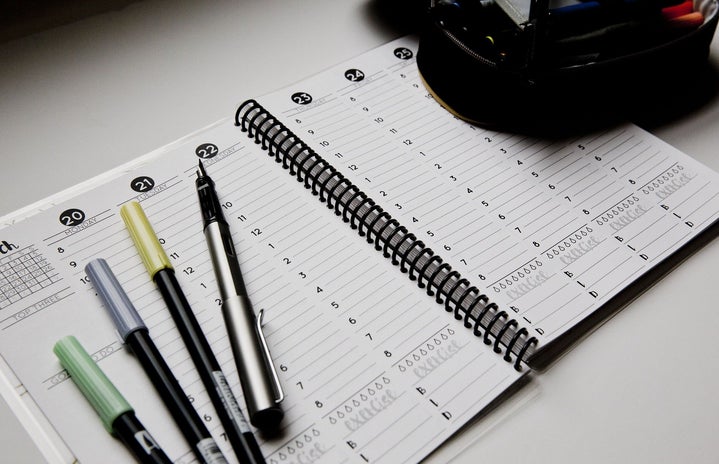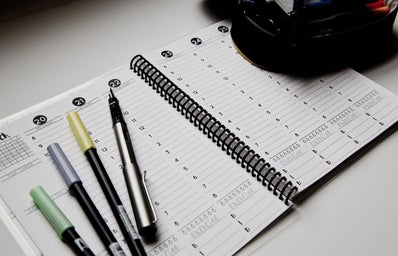We all have that one super-organized friend who has everything perfectly scheduled to the minute, never failing to make us feel infinitely inadequate—cough—inspiring us every day. Whether or not we are using our time productively can be a point of anxiety in college, as we’re constantly tasked with the difficult balance between school and social life.
The sense of restlessness and the fear of being unproductive permeates our lives in modern-day society. People are so afraid of wasting time or being bored that they constantly try to busy themselves with tasks. Otherwise, they find themselves procrastinating—which puts them under the illusion that they’re doing nothing, when in fact they’re still occupying themselves with a task that requires less brainpower. We’ve all been there during mid-term season when you just can’t study any more: your mind goes on auto-pilot and, before you know it, you’re on Facebook absent-mindedly scrolling down your feed.
So what happens to self-care within a society where we’re continuously faced with the pressures of being productive? We tend to push ourselves to the point of burn-out. Not only does this actually end up hindering our work, but it also takes a significant toll on emotional well-being. Neuroscientists have found that constantly bombarding ourselves with tasks diminishes the quality of our lives.
So if you’re feeling stressed and find your mind wandering from whatever task is in front of you, here’s a tip: take a moment to zone out. Idleness has been proven to have health benefits such as better digestion, improvements in mood, and a boost in overall emotional well-being. By replenishing glucose and oxygen levels in the brain, down-time helps us to feel more clear-headed and rested (CQ). The brain actually depends on down-time to recharge, as well as to “consolidate memory and reinforce learning, by strengthening the neural pathways that make such feats possible” (The Guardian).
Have you ever had the experience of struggling with a problem for hours, only to have a random epiphany when you’re in the shower? Getting away from the task at hand for a short period of time allows us to be more productive in the long run. Boredom is a helpful state that allows us to think more creatively (CQ). Obviously, however, we can’t afford to take as many breaks as we want when we’re preparing for exams, so we need to strike a balance between study time and resting. A study at Florida State University found that working in 90-minute intervals was the key to maximizing productivity.
So what to do during these breaks? You can try daydreaming, if you like. Whenever I’m on any mode of transportation, I tend to zone out by looking at the landscape. This practice is so relaxing that it has turned into one of my favorite times of the day. Another tactic is to leave your computer for a few moments to go outside. Being around nature has been proven to reduce anxiety and stress, as well as to improve our attention capacity (CQ). So, next time you’re stressed about exams, why not take a study break to exercise or take a walk in the park? You’ll be much happier and more productive in the long-term.

